Admit it. We’ve all had that moment, deep into a school research project, where the realization hits that the neat hypothesis we had when we started working is not going to be borne out by the data. At that point, we are faced with two options: a) start over, instantly making all those hours already spent a complete waste of time; or, b) fudge the data and transform that stinker into a sexy little piece of academia. For a student, the consequences of such fakery could be as severe as expulsion from school. But for professional academics, the stakes are much higher. Millions of dollars and professional and personal reputations hang in the balance.
Here are ten of the worst frauds, fakers, and phonies ever to pull the wool over the bespectacled eyes of the academic world:
-
Diederik Stapel
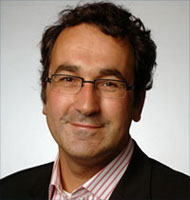 Give Stapel credit — to falsify data for years without getting caught is quite the forgery feat. Working as a social psychologist at three Dutch universities from 2006-2010, Stapel created entire experiments out of thin air, duping dozens of unsuspecting academic journals into publishing his material. Investigations determined that Stapel had sustained his charade by being the “lord of the data,” fending off requests for his raw research materials with threats, intimidation, and insults. His best “finding”: meat-eaters are more selfish than vegetarians.
Give Stapel credit — to falsify data for years without getting caught is quite the forgery feat. Working as a social psychologist at three Dutch universities from 2006-2010, Stapel created entire experiments out of thin air, duping dozens of unsuspecting academic journals into publishing his material. Investigations determined that Stapel had sustained his charade by being the “lord of the data,” fending off requests for his raw research materials with threats, intimidation, and insults. His best “finding”: meat-eaters are more selfish than vegetarians. -
Jan Hendrik Schön
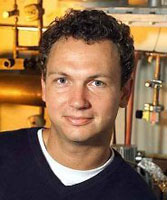 Now dubbed “the Schön scandal,” the world of condensed matter physics was rocked when Jan Hendrick Schön’s amazing findings with semiconductors that had been loudly heralded by journals like Nature and Science began to unravel under scrutiny. First, Schön claimed to have accidentally submitted data incorrectly. Then, when investigators came looking for the raw data on his experiments, he played the “my-computer-has-limited-storage-space-so-I-deleted-everything” card. Finally, Bell Labs, his employer, discovered Schön’s graphs that had looked just a little too perfect were made that way through the use of math formulas, not experiments. Schön’s doctorate degree was revoked, and he returned to Germany.
Now dubbed “the Schön scandal,” the world of condensed matter physics was rocked when Jan Hendrick Schön’s amazing findings with semiconductors that had been loudly heralded by journals like Nature and Science began to unravel under scrutiny. First, Schön claimed to have accidentally submitted data incorrectly. Then, when investigators came looking for the raw data on his experiments, he played the “my-computer-has-limited-storage-space-so-I-deleted-everything” card. Finally, Bell Labs, his employer, discovered Schön’s graphs that had looked just a little too perfect were made that way through the use of math formulas, not experiments. Schön’s doctorate degree was revoked, and he returned to Germany. -
Hwang Woo-suk
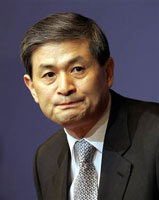 Dr. Hwang seemed to have found a nice loophole in the system when he burst onto the scene in South Korea in 1999: why produce scientific, verifiable data to prove your work when you can just, not? The Seoul National University professor claimed to have cloned two cows, but provided no proof other than photo ops. Then he cloned a dog, Snuppy, and the accolades began pouring in. His crowning achievement was announced in the March 12, 2004 issue of Science — the successful cloning of human embryonic stem cells, a task thought to be impossibly complex. The Korean government declared him Supreme Scientist, and he received $500 million in research grants. Nature ran a breathless bio praising his success as “the stuff of fables,” a hilariously accurate but unwitting assessment. Two years later, a SNU probe revealed Hwang had faked the results. In the aftermath, Hwang was fired, tried, and convicted for embezzling $3 million of research money, and sentenced to two years in the slammer.
Dr. Hwang seemed to have found a nice loophole in the system when he burst onto the scene in South Korea in 1999: why produce scientific, verifiable data to prove your work when you can just, not? The Seoul National University professor claimed to have cloned two cows, but provided no proof other than photo ops. Then he cloned a dog, Snuppy, and the accolades began pouring in. His crowning achievement was announced in the March 12, 2004 issue of Science — the successful cloning of human embryonic stem cells, a task thought to be impossibly complex. The Korean government declared him Supreme Scientist, and he received $500 million in research grants. Nature ran a breathless bio praising his success as “the stuff of fables,” a hilariously accurate but unwitting assessment. Two years later, a SNU probe revealed Hwang had faked the results. In the aftermath, Hwang was fired, tried, and convicted for embezzling $3 million of research money, and sentenced to two years in the slammer. -
Emil Rupp
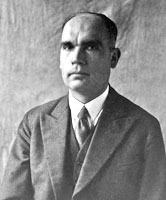 In the early days of Einstein’s theorizing, he had his share of unbelievers. So in 1926, when well-respected physicist Emil Rupp conducted canal ray experiments that supported Einstein’s theory of wave-particle duality, it immediately attracted criticism. It took nine years before suspicious colleagues were able to expose Rupp’s work as fraudulent, despite the fact that to achieve the results he claimed, Rupp needed equipment that would not have even fit inside his laboratory. In 1935, he had to retract all five of his scholarly publications. As famous physicist Walther Gerlach later remarked, “It turned out that everything that he had ever published, everything, was forged.” Rupp blamed his obsessive-compulsive disorder for the massive amount of deception, saying he had written the “fictions” because of the ailment.
In the early days of Einstein’s theorizing, he had his share of unbelievers. So in 1926, when well-respected physicist Emil Rupp conducted canal ray experiments that supported Einstein’s theory of wave-particle duality, it immediately attracted criticism. It took nine years before suspicious colleagues were able to expose Rupp’s work as fraudulent, despite the fact that to achieve the results he claimed, Rupp needed equipment that would not have even fit inside his laboratory. In 1935, he had to retract all five of his scholarly publications. As famous physicist Walther Gerlach later remarked, “It turned out that everything that he had ever published, everything, was forged.” Rupp blamed his obsessive-compulsive disorder for the massive amount of deception, saying he had written the “fictions” because of the ailment. -
Michael A. Bellesiles
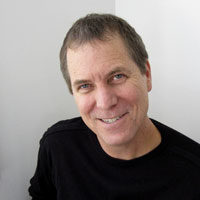 In an article in the Journal of American History and a Bancroft Prize-winning book of the same name, Michael Bellesiles called the idea of widespread gun ownership in colonial America “myth overwhelming reality.” So in a fight-fire-with-fire approach, Bellesiles set about creating some myths of his own. According to law professor James Lindgren, Bellesiles’ book counted guns from wills that did not exist, cited inventories destroyed in 1906, and contained a murder rate with a 100% margin of error. Amid a flood of criticism from everyone from scholars to Charlton Heston, officials at Emory University launched an investigation into their professor’s work. Unsurprisingly, the panel found the work a tad dishonest, to say the least, no thanks to Bellesiles, who did not turn over any of his records because they had been destroyed in a flood, or hacked on his computer, or something. In the end, the Bancroft was yanked, and Bellesiles resigned from Emory.
In an article in the Journal of American History and a Bancroft Prize-winning book of the same name, Michael Bellesiles called the idea of widespread gun ownership in colonial America “myth overwhelming reality.” So in a fight-fire-with-fire approach, Bellesiles set about creating some myths of his own. According to law professor James Lindgren, Bellesiles’ book counted guns from wills that did not exist, cited inventories destroyed in 1906, and contained a murder rate with a 100% margin of error. Amid a flood of criticism from everyone from scholars to Charlton Heston, officials at Emory University launched an investigation into their professor’s work. Unsurprisingly, the panel found the work a tad dishonest, to say the least, no thanks to Bellesiles, who did not turn over any of his records because they had been destroyed in a flood, or hacked on his computer, or something. In the end, the Bancroft was yanked, and Bellesiles resigned from Emory. -
Luk Van Parijs
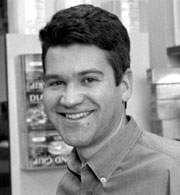 Apparently, Luk Van Parijs thought defrauding the government out of a couple million bucks wouldn’t register on the radar, given the current deficit of $15 trillion. For an MIT prof, he didn’t think that one through very well. In 2005, the school looked into Parijs’ work at the Center for Cancer Research after workers in his lab couldn’t verify some of his data. Officials discovered he had faked research data and fired him. The feds got involved once it came out Parijs had lied on federal grant applications. He pled guilty, and in June 2011, a judge sentenced him to one year of probation, 400 hours of community service, and a fine of $61,000 to be paid to MIT. Not bad considering he could have received 5 years and a hefty $250,000 fine.
Apparently, Luk Van Parijs thought defrauding the government out of a couple million bucks wouldn’t register on the radar, given the current deficit of $15 trillion. For an MIT prof, he didn’t think that one through very well. In 2005, the school looked into Parijs’ work at the Center for Cancer Research after workers in his lab couldn’t verify some of his data. Officials discovered he had faked research data and fired him. The feds got involved once it came out Parijs had lied on federal grant applications. He pled guilty, and in June 2011, a judge sentenced him to one year of probation, 400 hours of community service, and a fine of $61,000 to be paid to MIT. Not bad considering he could have received 5 years and a hefty $250,000 fine. -
Scott Reuben
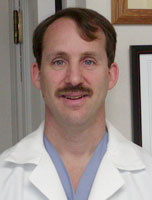 Scott Reuben was to academia what Bernie Madoff was to investing. Like Madoff, Reuben was once highly respected. He taught at Tufts University in Boston and held a key position at Baystate Medical Center. Incredibly, the light was shined on Reuben after an audit in 2008 showed he had conducted two studies without Baystate’s permission. The resulting review of his work revealed Reuben had falsified at least some of the data in every one of his 21 scholarly articles dating back to 1996. The now-household knowledge about taking aspirin after surgery — a Reuben innovation — is now completely in question, along with everything else he ever published. Reuben’s “letting go” by Baystate was the least of his troubles. In 2010, he pled guilty to defrauding Pfizer and got six months in the big house, plus three years of probation and $420,000 in fees.
Scott Reuben was to academia what Bernie Madoff was to investing. Like Madoff, Reuben was once highly respected. He taught at Tufts University in Boston and held a key position at Baystate Medical Center. Incredibly, the light was shined on Reuben after an audit in 2008 showed he had conducted two studies without Baystate’s permission. The resulting review of his work revealed Reuben had falsified at least some of the data in every one of his 21 scholarly articles dating back to 1996. The now-household knowledge about taking aspirin after surgery — a Reuben innovation — is now completely in question, along with everything else he ever published. Reuben’s “letting go” by Baystate was the least of his troubles. In 2010, he pled guilty to defrauding Pfizer and got six months in the big house, plus three years of probation and $420,000 in fees. -
Jon Sudbø
 Jon Sudbø’s fraud is not the most egregious on this list, but it’s probably the least well-disguised. Sudbø was a physician and associate professor at the University of Oslo. In late 2005, he authored a work in the medical journal The Lancet stating over-the-counter drugs like ibuprofen could reduce the risk of oral cancer for smokers. A fellow Norwegian scientist became suspicious when she noticed Sudbø had cited a database that had not yet opened. The man had not fudged data: he had created the entire 900-patient database out of thin air and given 250 of them the same birthday. An independent commission found that of Sudbø’s 38 academic articles, 15 were frauds. Authorities in Norway revoked his physician’s license, but the jury is still out on how many people were harmed by his lies.
Jon Sudbø’s fraud is not the most egregious on this list, but it’s probably the least well-disguised. Sudbø was a physician and associate professor at the University of Oslo. In late 2005, he authored a work in the medical journal The Lancet stating over-the-counter drugs like ibuprofen could reduce the risk of oral cancer for smokers. A fellow Norwegian scientist became suspicious when she noticed Sudbø had cited a database that had not yet opened. The man had not fudged data: he had created the entire 900-patient database out of thin air and given 250 of them the same birthday. An independent commission found that of Sudbø’s 38 academic articles, 15 were frauds. Authorities in Norway revoked his physician’s license, but the jury is still out on how many people were harmed by his lies. -
Ward Churchill
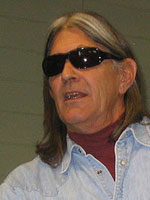 When Churchill referred in a book to the Americans killed in the World Trade Center Buildings on 9/11 as “little Eichmanns,” he spawned a wave of outraged people looking for any excuse to see him canned from his professorship at the University of Colorado. Churchill obliged them by engaging in “gross, gross misconduct.” In 2006, the school found him guilty of seven instances of fabricating, falsifying, and plagiarizing and axed him. Churchill seems to be no stranger to shady dealings. The United Keetoowah Band of Cherokee Indians publically disavowed his varying claims of one-sixteenth and three-sixteenth Cherokee ancestry.
When Churchill referred in a book to the Americans killed in the World Trade Center Buildings on 9/11 as “little Eichmanns,” he spawned a wave of outraged people looking for any excuse to see him canned from his professorship at the University of Colorado. Churchill obliged them by engaging in “gross, gross misconduct.” In 2006, the school found him guilty of seven instances of fabricating, falsifying, and plagiarizing and axed him. Churchill seems to be no stranger to shady dealings. The United Keetoowah Band of Cherokee Indians publically disavowed his varying claims of one-sixteenth and three-sixteenth Cherokee ancestry. -
The Sokal Affair
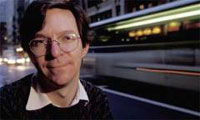 No discussion of academic fraud would be complete without a mention of the Sokal Hoax. A certain physics professor at NYU thought he could trick some scientific journal into publishing a work “liberally salted with nonsense” if it just sounded good. Thus came to be Alan Sokal’s “Transgressing the Boundaries: Toward a Transformative Hermeneutics of Quantum Gravity,” which appeared in the journal Social Text, a magazine that resisted peer review as a hurdle to fresh research. In the article, Sokal used “fawning references, grandiose quotations, and outright nonsense” to claim that gravity was pretty much all in our minds. On the day it ran, Sokal revealed in the magazine Lingua Franca that the gravity article was a hoax. Much debate ensued about the need for more thorough review of research submitted to academic journals. For their part, after enduring the academic equivalent of being punked, the good people at Social Text reversed their stance and decided peer review was a good thing after all.
No discussion of academic fraud would be complete without a mention of the Sokal Hoax. A certain physics professor at NYU thought he could trick some scientific journal into publishing a work “liberally salted with nonsense” if it just sounded good. Thus came to be Alan Sokal’s “Transgressing the Boundaries: Toward a Transformative Hermeneutics of Quantum Gravity,” which appeared in the journal Social Text, a magazine that resisted peer review as a hurdle to fresh research. In the article, Sokal used “fawning references, grandiose quotations, and outright nonsense” to claim that gravity was pretty much all in our minds. On the day it ran, Sokal revealed in the magazine Lingua Franca that the gravity article was a hoax. Much debate ensued about the need for more thorough review of research submitted to academic journals. For their part, after enduring the academic equivalent of being punked, the good people at Social Text reversed their stance and decided peer review was a good thing after all.
No comments:
Post a Comment